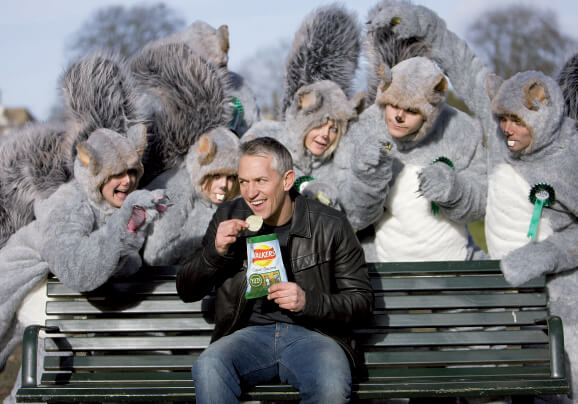Thick and fat
Child obesity, Jamie Oliver on his high horse, lunchbox police at the school gates and the five-a-day mantra; just when it seemed things couldn’t get worse for the junk-food industry, they have. A study from the University of Bristol has identified a link between processed, fatty foods and lower childhood IQ: modern diets are making our kids thick, as well as fat.
The study, involving nearly 4,000 children born in the ‘90s, looked at three typical kinds of toddler diet: ‘processed’, ‘traditional’ and ‘health-conscious’. Even after variables such as parental IQ and socio-economic class were taken into account, every additional unit at the processed end of the dietary spectrum resulted in an average IQ drop of 1.6 points.
For the paragons who managed to fill their toddlers with fresh fruit, fish and wholegrains, the study reported a corresponding average lift in the children’s IQ, which persisted through to the age of eight and will probably last for life.
If you are a marketer on food brands aimed at kids – McDonald’s, Walkers, Jammie Dodgers – what do you do about a media storm like this? Ignore it and let it blow over? Challenge the data? Marginalise the study as something for just the younger end of the age spectrum? Not smart.
The first step is a cool appraisal of your product. If it doesn’t deserve to be lumped in with the others as junk food, you have to speak up. A well-prepared burger, made with good, lean beef and served with lettuce and bun, constitutes a reasonable source of protein and vitamins. If it is promoted alongside a fresh juice, rather than a shake, so much the better. In nutritional terms, the burger is a long way from a bag of crisps or a biscuit.
Is processed food always bad? Many brands that process staple foods do at least make it easier for parents to get a bit of calcium or iron into their kids. It is a genuine problem – try putting a piece of fresh fish, an apple and a wholegrain cracker in a nine-year-old boy’s lunchbox and see what comes back. Many parents are concerned that their children won’t eat anything whatsoever at school if what they provide isn’t both palatable and playful, so they choose processed food.
Communicating the role your processed-food brand plays for parents, labelling clearly and building in some kind of semiotic signal of nourishment can all help. Babybel is probably the best example; its waxy, peel-off wrapper serves to add both play value for the child and reassurance on cheese nutrition for the parent, even though it is still a processed product.
But what if your brand is simply a fast, fatty, sugary treat? The kind of food that kids just love and will continue to love as they grow older, but, if the research is to be believed, not particularly wiser. What are your options then?
You could be upfront about it, avow that pleasure matters too in life, and that nutritionally empty treats have their place in the greater scheme of things. You could equally go the other way and keep your head down.
Or you could get real. This story may not be the death-knell of the snack industry, but it is another of those blows that will just keep coming. Think of crisps as the new cigarettes and you won’t be far off. In which case, the answer is to use yesterday’s profits to fund tomorrow’s innovation – something that’s good for the brand, and good for the brain. A vitamin-rich, broccoli-based snack that kids will eat?
In April 2010, Coco Pops bus-shelter posters, featuring Coco the Monkey in a school uniform, were the subject of complaints to the ASA from concerned parents and food campaigners. The ads encouraged kids to eat the cereal – which is 35% sugar – as an after-school snack.
Critics have laid into McDonald’s over hooking kids by giving away a free toy with Happy Meals. A campaign has been launched in the US to ban the practice. In a Daily Mirror interview, UK chief executive Jill McDonald retaliated: “Here, you can buy the toy separately. We talked to customers about it a few years ago, but the overwhelming view was ‘for goodness sake, it’s a treat.’”

Walkers reduced salt content in 2006
PepsiCo has been taking strides to reduce the salt content in its snack range. It relaunched its core Walkers crisps line in 2006 with 25% less salt, and in 2007 removed between 25% and 58% of the salt content from Quavers, Wotsits, Monster Munch and French Fries. However, the company has recently admitted that it would not be able to meet the FSA’s 2012 voluntary salt-reduction targets for Quavers, or make further significant reductions for Walkers with current available technologies.
